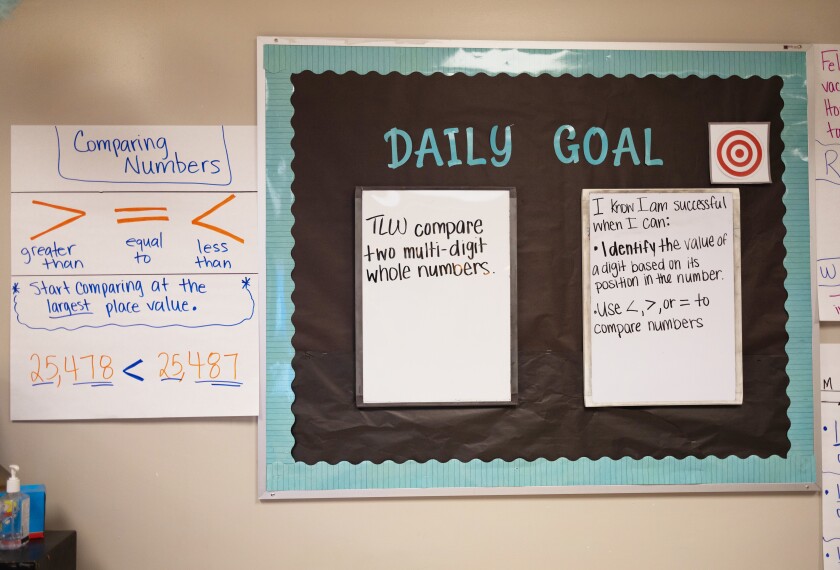New research on a Chicago policy that requires some 9th graders to double up on algebra instruction identifies “positive and substantial” longer-run benefits for participants, including improvements to performance on college-entrance exams, high school graduation rates, and college-enrollment rates.
The benefits were largest for students with “decent math skills but below-average reading skills,” the study says, suggesting that this might be explained by the intervention’s focus on improving students’ written expression of mathematical concepts, according to an overview of the research published last week in the journal Education Next.
Chicago’s double-dose policy was launched in 2003, according to the study, co-authored by researchers Kalena Cores of Texas A&M University, Joshua Goodman of Harvard University, and Takako Nomi of St. Louis University in Missouri. To gauge the policy’s effects, the study compared students who were just below the cutoff point for being assigned a double dose of algebra with those just above the cutoff. As the study notes, those two student groups were very similar in academic skills and other characteristics, with their scores differing by a “tiny amount.”
In the short term, the researchers said, there was no improvement in the failure rates on the 9th grade algebra exam (though they did find a rise in the percentage scoring a B or higher). But some of the study’s longer-run outcomes showed greater promise.
For one, the researchers found students who received a double dose of algebra, on average, had scores on the math portion of the ACT that were 0.15 standard deviations above that for the control group. “This is equivalent to closing roughly 15 percent of the black-white gap in ACT scores,” the study says.
The double-dose students also saw increased high school graduation rates, with a 17 percent improvement when combining those who graduated in four and five years. In addition, they were 8.6 percentage points more likely to enroll in college within five years of starting high school. Most of the increase, however, came from enrollment in two-year colleges.



